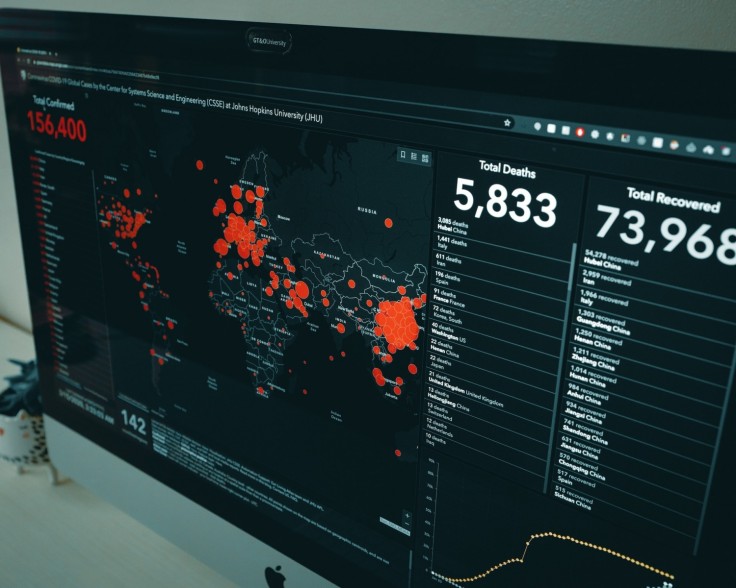
Introduction
Data has become a vital asset for organizations across industries in today's digital age. From financial records and customer information to proprietary research and intellectual property, data plays a pivotal role in the operation and success of modern businesses. With the increasing reliance on electronic data intake, storage, and transmission, the importance of data integrity and security has never been greater.
Data integrity ensures the accuracy, reliability, and consistency of data throughout its lifecycle, while data security involves protecting data from unauthorized access, modification, deletion, or theft. It's important to be aware of the impact of controls on data integrity and information systems, as well as measures that organizations can implement to enhance their data integrity and security.
Background
Data integrity and data security are critical considerations in data storage, flow, and management. Organizations must protect data from unauthorized access and modifications and ensure its accuracy and reliability. Breaches in data integrity and security can lead to severe consequences such as financial losses, reputational damage, and legal liabilities. Organizations should establish robust measures to safeguard their data, including encryption, access controls, data backup and recovery, audit trails, data privacy, cybersecurity, and compliance with legal and regulatory requirements.
Regulatory Implications for Data Integrity
Compliance with regulatory expectations for data integrity is crucial for organizations at local, national, and global levels. Regulatory bodies, such as the US Food and Drug Administration (FDA), the World Health Organization (WHO), and the European Medical Agency, enforce regulations and guidelines to ensure data integrity in specific industries. Acts like the Sarbanes-Oxley Act (SOX) and the Health Insurance Portability and Accountability Act (HIPAA) in the United States set strict standards for safeguarding financial and healthcare data integrity, respectively.
Methods (An Experimental Case Study)
An illustrative case study highlights the dangers of inadequate data security and integrity measures. The example focuses on an e-commerce application called the Order Management System (OMS), developed in 2018. The system aimed to handle sensitive customer data for a large retail company, including purchase history and preferences. However, inadequate requirements gathering, analysis, and documentation led to incomplete data security and integrity measures. The lack of authentication, encryption, and secure coding practices made the system vulnerable to attacks. The application was not comprehensively tested for vulnerabilities, leading to data breaches and subsequent legal actions and penalties.
Results
The case study emphasized the importance of robust data security and integrity measures. Comparing the OMS with a secure application called the Electronic Payment Management System (EPMS), it was evident that comprehensive measures significantly reduced data security breaches. EPMS incorporated secure coding practices, access controls, encryption, and thorough testing, resulting in minimal breaches and ensuring the protection of financial and personal data. This highlights the positive impact of implementing appropriate security measures.
Data Integrity Measures
To ensure data integrity and security, organizations should implement several impactful measures. These include:
• Validating input data: Verifying the accuracy and trustworthiness of data before entering it into servers or databases.
• Implementing access controls: Strictly controlling data access permissions to limit access to authorized individuals and adopting a least privileged model of security.
• Maintaining audit trails: Establishing an automatic audit monitoring system to identify data changes, trace their origin, and track data events.
• Backing up data: Regularly and securely backing up data to prevent data loss in the event of a breach or system failure.
• Guiding the staff: Educating employees on the importance of data integrity and security and fostering a culture of effective data management.
• Code development improvisations: Incorporating controls throughout the system development lifecycle, such as secure coding practices, code reviews, and input data validation.
Conclusions
Data integrity and security are vital considerations for organizations in the digital age. Organizations should implement robust data security and integrity measures in order to protect themselves from data breaches, financial losses, reputational damage, and legal repercussions. It is essential to stay informed about evolving threats and continuously improve security measures to safeguard data effectively.
Data security and integrity should be approached as a comprehensive and multidisciplinary effort, ensuring the confidentiality, accuracy, and reliability of data across systems and processes.
Prioritizing data integrity and security can help organizations establish a strong foundation for their operations, build trust with customers, and mitigate risks associated with data breaches.
About Sasidhar Duggineni

Sasidhar Duggineni is the Compliance Manager for a leading clinical research organization. He has over 11 years of expertise in the life science industry, specifically in clinical research organizations and big pharma companies, and has made significant contributions in the fields of data integrity research, healthcare IT compliance, software quality assurance, information systems auditing, and GxP compliance. Duggineni has played a crucial role in the validation testing of COVID-19 vaccine trials conducted by his organization and has actively supported federal government agencies like NIH and DOD in their medical research initiatives. Mr.Duggineni is the creator of the Data Integrity as a Code (DiaC) app, which is a first-in-industry one-stop app for all industrial data integrity needs. His DiaC app is currently being used by professionals and researchers in more than 100 countries, with a user base of 50,000 users and growing. This App is completely free for everyone to download with the goal of advancing innovation in different domains of data integrity and information science and also for the benefit of practitioners and students worldwide.
Learn more: https://www.linkedin.com/in/sduggineni/
© 2025 University Herald, All rights reserved. Do not reproduce without permission.








